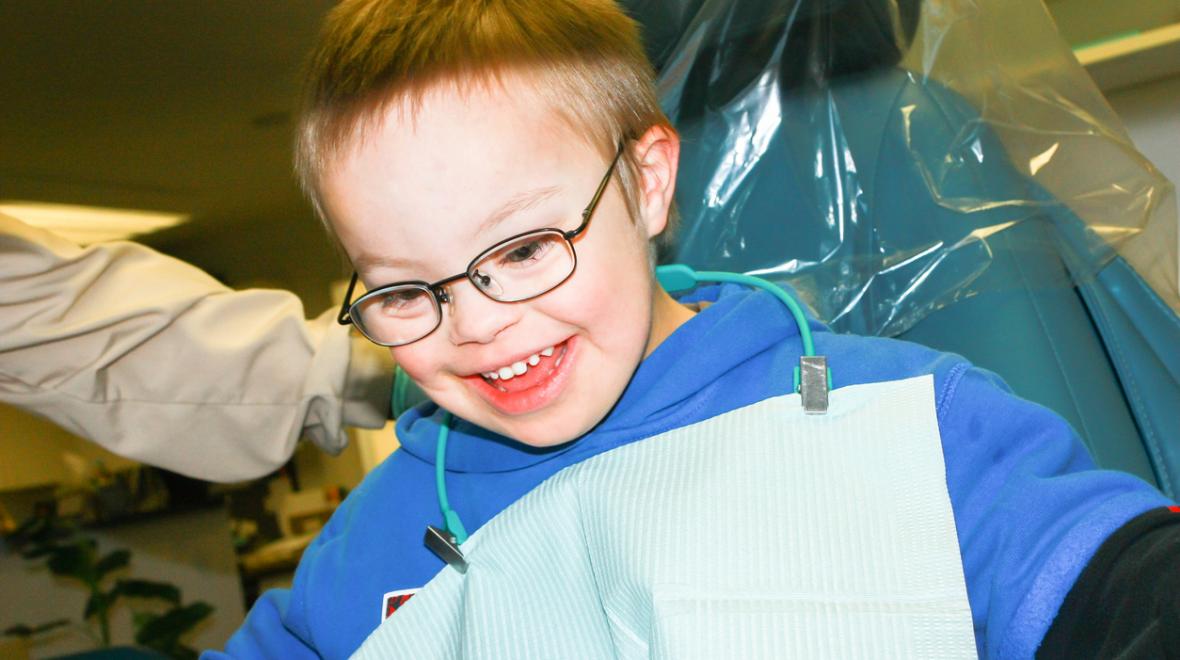Why Dental Care is so Important for Kids With Special Needs

If you have kids, you know how difficult it can be to get them to care for their teeth. When you have special needs children, it can be difficult to get them to brush and floss every day, let alone visit the dentist. When it comes to dental care, children with cognitive, developmental, emotional, physical, or medical conditions may experience increased anxiety or discomfort (both at home and at the dentist). Handling their specific requirements necessitates patience, understanding, and compassion.
We are proud to be experts in dental care for children with special needs at the Little Dentist. We are trained as pediatric dentists in various behavioral techniques to help your children feel at ease with their Naperville dentist. After all, proper oral hygiene is critical to overall health, especially for children with special needs. It is critical to begin as early as possible in order to lay the groundwork for lifelong health. This is why.
Dental Care for Kids with Special Needs
We understand how difficult it can be to get any child to the dentist, let alone a child with a physical or developmental disability. You might even believe that since your children's teeth will fall out anyway, there's no point in putting them through the stress of going to the dentist until their adult teeth arrive. Nothing could be more false.
Early dental care for children with special needs is critical to their health. It is known as preventive dentistry because it helps to prevent health problems from occurring in the first place. Preventive dentistry is the best option for special needs children rather than waiting for a problem to arise. This is because it will help your children avoid discomfort from things like cavities, as well as fewer costs and dentist appointments in the future.
Regular brushing and flossing at home is the first step in preventive dentistry for children with special needs. Routine visits with a dentist who understands your child's specific needs, such as the experts at Innovative Pediatric Dentistry, should also be part of your child's dental care. They have additional training and equipment to care for patients with special needs, so you can rest assured that they are in capable hands.
How to Implement a Healthy Dental Care Routine for Special Needs Children
Dental care for children with special needs necessitates extra attention and diligence, but it does not have to be difficult. You can help your child take good care of their teeth now and in the future with a little planning and preparation.
1. Establish a Consistent Routine
To ensure your child's oral hygiene success, establish a consistent routine from the start. Establish a daily routine of brushing and flossing every morning and night (and after sugary snacks). Never skip a day — even missing one session can significantly impede your child's progress. However, with consistency and repetition, we are confident that your child will learn to maintain good oral health.
2. Take Action Slow dental care for special needs children necessitates extra patience and practice. Children with autism, for example, are frequently overwhelmed by sensory stimuli, making brushing and flossing extremely difficult (and uncomfortable). Begin by gently touching your child's lips or the inside of his or her mouth with a toothbrush. This will allow them to become accustomed to the sensation without feeling intrusive.
3. Floss and brush together
Once your child is comfortable with a toothbrush, make dental care a family affair to get them excited about oral hygiene. Brushing and flossing together not only allows you to monitor your child's progress but also allows you to demonstrate the proper technique. After all, children love to imitate their parents, so take advantage of this by having your child mimic your oral hygiene habits
4. Select Healthy Foods
Proper oral hygiene entails more than just brushing and flossing; it also entails eating well and avoiding excess sugar. Limiting your intake of starchy and sugary foods will help you avoid cavities and promote the development of strong, healthy teeth. Brush your children's teeth after each meal (especially after sweet treats!) and encourage them to drink plenty of water to wash those sugar germs away.
5. Locate a Dentist with Special Needs Experience.
Not every dentist is trained or equipped to handle the dental needs of special needs children. Certain conditions can cause your child's mouth to develop more slowly or make treatment more difficult and time-consuming, which is why special needs children require extra care and attention. The doctors at the Little Dentist have the training, experience, and ability to care for special needs patients of all ages, and they treat each child with the dignity and respect they deserve.
6. Prepare Yourself and Your Child for Your Child's First Dental Visit
Most people are afraid of going to the dentist, but it can be particularly upsetting for children with special needs. You can help to alleviate some of this anxiety by remaining optimistic about the upcoming appointment and preparing ahead of time. Before the appointment, speak with your Naperville pediatric dentist and ask any questions you have so you know what to expect. You could even go to the dentist's office a week ahead of time to show your child where they'll be going so they know it's a secure environment. The doctors at the little dentist are here to guide you and your child through this new experience. Whatever your children's requirements are, You can be confident that we will be there for them every step of the way.